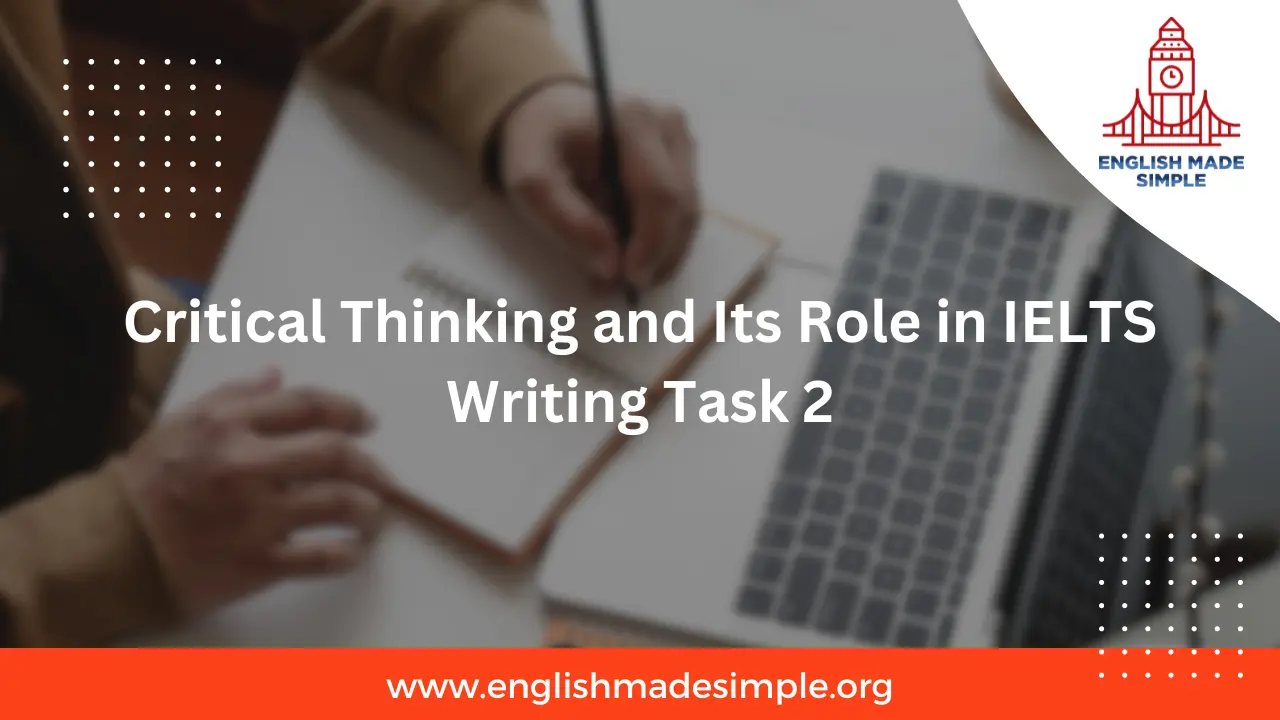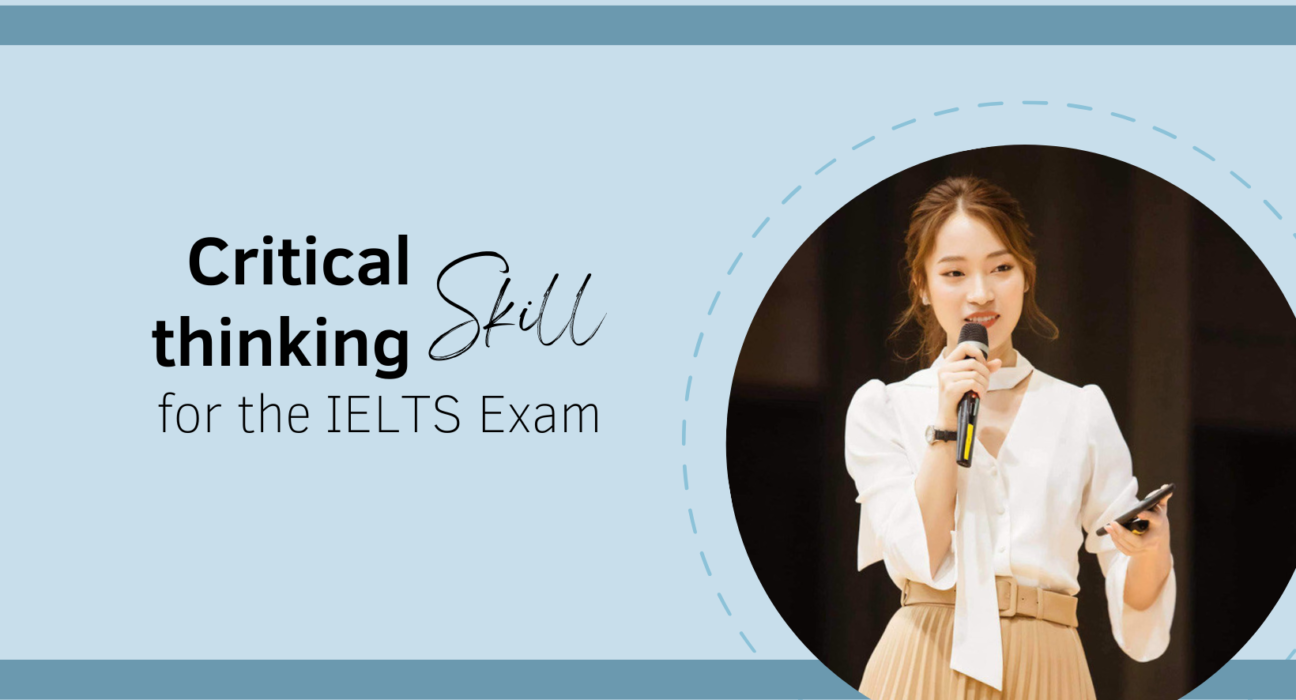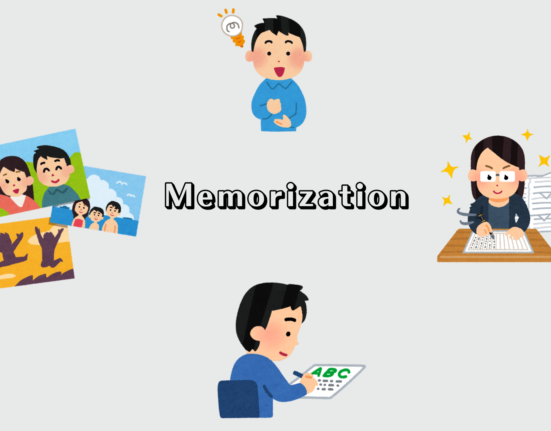

20 Critical Thinking Questions for IELTS Writing
20 questions to develop critical thinking skills.
In this lesson, we look at 20 questions that will help you to develop your critical thinking skills.
The more time you spend contemplating these questions in your preparation period, the faster you will be in your real IELTS writing test.
The Environment
- What can individuals/ companies/ government do to protect the environment?
- Who has a greater responsibility to protect the environment: individuals, companies, or governments?
- What stops individuals/ companies/ governments from taking action to improve the environment?
- Which is more important: protecting the environment or economic growth?
- Is it a good thing that more people own their own private car?
- How can we reduce traffic congestion in cities?
- What are the positive and negative effects of tourism?
- How can the government protect areas of natural beauty?
- How do you think that parenting styles were different in the past?
- What makes someone a “good” parent?
- Who has a larger influence on children, parents, teachers, or friends?
- What differences are there in terms of the opportunities you have (schooling, jobs, etc.) if you are born into a rich family or a poor family?
- Should subjects such as art and music be taught in schools?
- What skills should schools equip young people with?
- What factors should young people consider when choosing a career?
- Many people get the news from social media. Is this a good or a bad thing?
- How does technology effect our productivity at work?
- How will advances in technology change the quantity and type of jobs in the future?
- Is salary the most important aspect when choosing a job?
- What makes a career or profession a “good” one to choose?
Write better IELTS essays by doing my TASK 2 WRITING COURSE
More lessons like this one...

Band 9 in IELTS Writing

Be Faster in IELTS Writing!

Take your IELTS answers to the next level with hedging!

5 Phrases for Double Question Essays
Start learning for free, what are you looking for.
- IELTS Listening
- IELTS Reading
- IELTS Speaking
- IELTS Speaking Test
- Academic Task 1
- Success Stories
Join our mailing list!
You’ll be notified of new lessons!

How to Enhance Critical Thinking for IELTS Writing Task 2: Expert Strategies
Developing critical thinking skills is crucial for success in IELTS Writing Task 2. This essential ability allows you to analyze complex issues, form well-reasoned arguments, and present your ideas coherently. In this comprehensive guide, we’ll …
Written by: IELTS Mentor
Published on: October 18, 2024
Developing critical thinking skills is crucial for success in IELTS Writing Task 2. This essential ability allows you to analyze complex issues, form well-reasoned arguments, and present your ideas coherently. In this comprehensive guide, we’ll explore effective strategies to sharpen your critical thinking for IELTS Writing Task 2, helping you achieve a higher band score.
Understanding Critical Thinking in IELTS Context
Critical thinking in IELTS Writing Task 2 involves analyzing the question, evaluating different perspectives, and forming logical arguments. It’s about going beyond surface-level information to develop insightful and well-supported ideas.
Why Critical Thinking Matters in IELTS Writing
Examiners are looking for candidates who can:
- Interpret the task accurately
- Generate relevant ideas
- Analyze issues from multiple angles
- Support arguments with solid reasoning and examples
Developing these skills can significantly boost your performance across all marking criteria, especially in Task Achievement and Critical Thinking.
Critical thinking diagram for IELTS Writing Task 2

Key Strategies to Improve Critical Thinking
1. practice active reading.
Active reading is a fundamental skill for developing critical thinking. When practicing for IELTS:
- Read a variety of texts on different topics
- Identify main ideas and supporting details
- Question the author’s assumptions and arguments
- Summarize key points in your own words
This approach helps you become more analytical and prepares you for the diverse topics in IELTS Writing Task 2.
2. Analyze Sample Essays
Studying high-scoring IELTS essays can provide valuable insights:
- Examine how top-scoring writers approach different question types
- Identify effective thesis statements and topic sentences
- Note how ideas are developed and supported
- Observe the use of cohesive devices and logical flow
As Dr. Emma Thompson, IELTS expert with 15 years of experience, states, “Analyzing model essays is like reverse-engineering success. It gives you a blueprint for crafting your own high-scoring responses.”
3. Develop a Questioning Mindset
Cultivate the habit of asking probing questions about any topic:
- What are the underlying causes of this issue?
- What might be the long-term consequences?
- Are there alternative perspectives to consider?
- What evidence supports or challenges these views?
This questioning approach will help you generate deeper insights for your essays.
4. Practice Brainstorming Techniques
Effective brainstorming is crucial for generating diverse ideas:
- Mind mapping: Start with the central topic and branch out with related ideas
- Freewriting: Write continuously for a set time without stopping to edit
- SCAMPER technique: Substitute, Combine, Adapt, Modify, Put to another use, Eliminate, Reverse
These methods can help you explore topics more thoroughly and discover unique angles for your essays.
5. Engage in Debates and Discussions
Participating in debates or discussions on IELTS-related topics can sharpen your critical thinking:
- Argue for and against different positions
- Listen actively to others’ viewpoints
- Identify logical fallacies in arguments
- Practice responding to counterarguments
This interactive approach helps you become more agile in your thinking and better prepared for handling questions about multiple opinions .
6. Analyze Current Events
Staying informed about global issues is invaluable for IELTS preparation:
- Read news from reputable sources
- Identify different stakeholders in complex issues
- Consider cultural and geographical factors
- Evaluate potential solutions to global problems
This habit not only improves your critical thinking but also builds your knowledge base for tackling a wide range of IELTS topics.
Advanced Techniques for IELTS Writing Task 2
1. develop thesis statements.
A strong thesis statement is the foundation of a well-argued essay:
- Clearly state your position on the issue
- Indicate the main points you’ll discuss
- Ensure it directly addresses the task question
Practice formulating thesis statements for various IELTS question types to improve your ability to quickly establish your argument.
2. Use the PEEL Paragraph Structure
Organize your body paragraphs using the PEEL structure:
- Point: State your main idea
- Explanation: Elaborate on your point
- Evidence: Provide supporting examples or data
- Link: Connect back to the thesis or transition to the next paragraph
This structure ensures your ideas are presented logically and coherently, which is crucial for writing strong task 2 conclusions .
3. Evaluate Sources and Evidence
When using examples or data in your essays:
- Consider the reliability of your sources
- Assess the relevance of the information to your argument
- Look for potential biases or limitations in the evidence
- Use a mix of personal experiences and factual information
This critical approach to evidence strengthens your arguments and demonstrates sophisticated thinking to the examiner.
4. Practice Counterfactual Thinking
Explore “what if” scenarios to deepen your analysis:
- Consider the opposite of your initial thoughts
- Imagine alternative outcomes to situations
- Think about how different factors could change the result
This technique can lead to more nuanced arguments and help you handle complex task 2 topics more effectively.
Overcoming Common Challenges
Dealing with unfamiliar topics.
When faced with an unfamiliar topic:
- Break down the question into smaller, more manageable parts
- Draw connections to related topics you’re more familiar with
- Focus on the underlying concepts rather than specific details
Remember, IELTS is testing your language skills, not your specialized knowledge. Use critical thinking to approach unfamiliar subjects logically.
Managing Time Pressure
To think critically under time constraints:
- Practice timed writing regularly
- Develop a consistent essay structure you can apply quickly
- Allocate specific time for planning and idea generation
- Use shorthand or symbols in your planning to save time
As you become more comfortable with these strategies for handling difficult topics , you’ll find it easier to think critically even under pressure.
Time management chart for IELTS Writing Task 2

Enhancing your critical thinking skills for IELTS Writing Task 2 is a journey that requires consistent practice and a willingness to challenge your own assumptions. By implementing these strategies and techniques, you’ll not only improve your IELTS score but also develop valuable skills that will serve you well beyond the exam.
Remember, critical thinking is as much about the process as it is about the outcome. Embrace the challenge, stay curious, and keep questioning. With dedication and the right approach, you’ll see significant improvements in your ability to craft compelling, well-reasoned essays for IELTS Writing Task 2.
How long does it take to improve critical thinking skills for IELTS?
Improvement in critical thinking is gradual and varies per individual. Consistent practice over 2-3 months can lead to noticeable improvements in your IELTS Writing Task 2 performance.
Can critical thinking skills learned for IELTS be applied to other areas?
Absolutely! The critical thinking skills developed for IELTS are transferable to academic studies, professional life, and personal decision-making.
How can I practice critical thinking if I’m studying for IELTS alone?
Engage with online forums, join virtual study groups, or use AI-powered discussion tools to debate ideas. You can also analyze written content critically and practice explaining your thoughts out loud.
Is it possible to over-analyze in IELTS Writing Task 2?
While depth is important, balance is key. Ensure your analysis is relevant to the question and fits within the time constraints. Focus on developing your main ideas thoroughly rather than covering too many points superficially.
How does critical thinking relate to IELTS Task Achievement?
Critical thinking directly impacts Task Achievement by helping you fully address all parts of the question, develop relevant ideas, and present a clear position throughout your essay.
Can improving fluency through active listening help with critical thinking in writing?
Yes, active listening improves your ability to process information quickly and critically, which can translate to better analysis and idea generation in writing.
How can I tell if my critical thinking is improving?
Look for improvements in your ability to quickly generate relevant ideas, provide in-depth analysis, and construct logical arguments. Feedback from experienced IELTS tutors or steadily improving practice test scores can also indicate progress.
Leave a Comment Cancel reply
Save my name, email, and website in this browser for the next time I comment.
This site uses Akismet to reduce spam. Learn how your comment data is processed .
Mastering IELTS Task 2: Writing Strong Conclusions for Maximum Impact
Mastering ielts listening: the art of identifying signal words.
English Made Simple
[email protected]

- 8 August 2024 8 August 2024

Critical Thinking and Its Role in IELTS Writing Task 2
Critical thinking is a crucial skill for success in IELTS Writing Task 2. This task requires you to write an essay responding to a question or prompt, where demonstrating your ability to analyze, evaluate, and argue effectively is key to achieving a high score. In this blog, we will explore what critical thinking involves, its importance in IELTS Writing Task 2, and strategies to develop and apply critical thinking skills in your essays.
Understanding Critical Thinking
Critical thinking involves the ability to think clearly and rationally, understanding the logical connection between ideas. It includes:
- Analysis : Breaking down complex information into smaller, manageable parts.
- Evaluation : Assessing arguments and evidence to determine their validity and relevance.
- Inference : Drawing logical conclusions based on available information.
- Explanation : Clearly articulating your reasoning and thought processes.
Importance of Critical Thinking in IELTS Writing Task 2
1. developing a clear argument.
Critical thinking helps you construct a well-organized argument, making your essay more coherent and persuasive. It allows you to present your ideas logically and support them with relevant evidence and examples.
2. Addressing the Prompt Effectively
By analyzing the essay prompt critically, you can identify the key issues and requirements, ensuring that your response is focused and relevant. It helps you understand what the examiner is looking for and how to address each part of the question.
3. Evaluating Different Perspectives
IELTS Writing Task 2 often requires you to consider multiple viewpoints. Critical thinking enables you to evaluate these perspectives fairly, weigh their strengths and weaknesses, and present a balanced argument.
4. Avoiding Fallacies and Bias
Critical thinking helps you avoid logical fallacies and biases, ensuring that your argument is reasoned and evidence-based. It prevents you from making unsupported claims or relying on emotional arguments.
Strategies for Applying Critical Thinking in IELTS Writing Task 2
1. understand the essay question thoroughly.
Carefully read and analyze the essay question to understand what is being asked. Identify the key components of the question and any specific instructions.
- Identify Keywords : Highlight the main topic and any specific terms or phrases.
- Break Down the Question : Determine what type of essay is required (e.g., opinion, discussion, problem-solution).
2. Plan Your Essay Effectively
Planning is crucial for applying critical thinking in your essay. Create an outline to organize your ideas and arguments.
- Introduction : State your thesis and outline the main points you will discuss.
- Body Paragraphs : Develop each point with clear arguments, evidence, and examples.
- Conclusion : Summarize your key points and restate your thesis or main argument.
3. Develop a Strong Thesis Statement
A clear thesis statement is essential for presenting a focused argument. It should summarize your main position and guide the direction of your essay.
- Be Specific : Clearly state your position on the topic.
- Be Concise : Summarize your main argument in one or two sentences.
4. Use Evidence and Examples
Support your arguments with relevant evidence and examples. This adds credibility to your essay and demonstrates your ability to evaluate information critically.
- Provide Data : Use statistics, studies, or factual information where applicable.
- Include Examples : Illustrate your points with real-life examples or hypothetical scenarios.
5. Consider Counterarguments
Addressing counterarguments shows that you have evaluated different perspectives. It strengthens your argument by demonstrating that you have considered and refuted opposing viewpoints.
- Acknowledge Different Views : Briefly present counterarguments.
- Refute or Concede : Explain why your argument is stronger or concede where appropriate.
6. Maintain Logical Flow
Ensure that your essay has a logical flow, with each paragraph connecting seamlessly to the next. Use linking words and phrases to guide the reader through your argument.
- Use Transitions : Words like “therefore,” “however,” and “in addition” help connect ideas.
- Ensure Coherence : Make sure each paragraph contributes to your overall argument.
7. Edit and Revise
Review your essay to identify any logical inconsistencies, grammatical errors, or unclear arguments. Editing and revising are crucial for refining your critical thinking and ensuring a polished final draft.
- Check for Clarity : Ensure that your arguments are clearly expressed.
- Verify Evidence : Confirm that all evidence and examples are relevant and accurately presented.
Example Essay with Critical Thinking
Essay Prompt: “Some people believe that the best way to increase road safety is to increase the minimum legal age for driving cars. To what extent do you agree or disagree?”
Introduction: Road safety is a significant concern worldwide, and various measures have been proposed to address it. One such measure is raising the minimum legal age for driving cars. While I agree that increasing the minimum age could potentially improve road safety, I believe it is not the sole solution and should be complemented by other strategies.
Body Paragraph 1: Increasing the minimum legal age for driving can enhance road safety by ensuring that drivers have greater maturity and responsibility. Younger drivers are often perceived as more impulsive and prone to risky behavior, as supported by studies showing higher accident rates among this group. By raising the minimum age, we can potentially reduce the number of accidents caused by inexperienced drivers.
Body Paragraph 2: However, age alone is not a definitive indicator of driving ability. Mature drivers can also exhibit reckless behavior, and younger drivers might be highly responsible. Therefore, it is essential to implement comprehensive driver training programs and rigorous testing to ensure that all drivers, regardless of age, are adequately prepared for the responsibilities of driving.
Body Paragraph 3: Additionally, improving road infrastructure and enhancing law enforcement can significantly contribute to road safety. Investing in better road design and maintenance, along with strict enforcement of traffic laws, can address safety issues more effectively than age restrictions alone. These measures, combined with age regulations, can create a more holistic approach to improving road safety.
Conclusion: In conclusion, while increasing the minimum legal age for driving can contribute to improved road safety, it should be part of a broader strategy that includes better driver education, road infrastructure, and law enforcement. A multifaceted approach will address the complexities of road safety more effectively and create a safer driving environment for all.
Critical thinking plays a vital role in IELTS Writing Task 2 by helping you develop clear, well-supported arguments and address the essay prompt effectively. By understanding the essay question, planning your response, developing a strong thesis, using evidence, considering counterarguments, maintaining logical flow, and editing thoroughly, you can enhance your critical thinking skills and achieve a higher band score. Practice these strategies regularly to refine your skills and excel in IELTS Writing Task 2. Good luck!
Academic English
Leave A Comment Cancel reply
Save my name, email, and website in this browser for the next time I comment.
Post Comment
- Grand vs intimate weddings
- Are the arts a waste of money?
- Solutions to smoking addiction
- Should the government or other organizations fund the arts?
- The search for extraterrestrial life
- Academic vs Non-Academic subjects
- Should teachers or parents discipline children?
- IELTS Speaking Part 2+3: Describe a person you know who is from a different cultural background
- IELTS Speaking Part 2 & 3 Sample: A Historical Building
- People moving to big cities – Reasons and Problems
- IELTS One Skill Retake: a faster way to achieve your desired IELTS score
- National defence or social benefits?
- Stone Age cutting tools
- Describe an important skill which cannot be learned at school
- Is buying new products a good thing?
- Topic Vocabulary in IELTS – What is it and How you can improve
- Exercise time for employees: What is your opinion?
- IELTS Speaking Part 2 – Describe a talk you gave to a group of people
- Revealing the secrets to mastering Multiple-choice questions in IELTS Reading for a perfect score.
- Energy Production in France
- Personal information on the Internet
- IELTS Speaking Part 1: Sample and Vocabulary for the Topic Tea or Coffee
- Passion vs. Realistic career
- Have something done
- Employers contact staff during their holidays: Pros and cons
- How can I enhance my English pronunciation?
- Sample IELTS Writing Task 1 Line Graph
- Mastering Adjectives: A Key to Descriptive and Precise English
- Adverbs of manner
- Should children learn a foreign language at primary schools?
- Is peer pressure good or bad for young people?
- Are men more competitive than women?
- Essay King Version 2.0 on iOS is released!
- Processed foods and ready-made meals: The pros and cons
- Are books losing importance?
- IELTS Writing Task 1 – Bar Chart: Museum Attendance Rates
- Exclamatory sentences in English grammar
- Unlocking 11 Common Slang Words for IELTS Speaking Success
- PUBLIC TRANSPORT | IELTS Speaking Part 1 Sample
- IELTS Academic Writing Task 1/ Graph Writing – Bar/ Column Graph
- Water scarcity – Causes and Solutions
- Languages spoken in Australia
- Have people forgotten the meaning of festivals?
- Buying online products – The benefits and drawbacks
- Should we ban dangerous sports?
- IELTS Vocabulary: News and Media
- Moving home: Would the kids benefit from it?
- IELTS Speaking Part 1: Chatting
- Should criminal trials be shown on television?
- IELTS Writing Task 2-Topic: Unmarried Status
- How to increase companies’ staff productivity
- Should children learn national or international history?
- Climate change: Should we keep trying to prevent it?
- Living alone: Is it positive or negative?
- Should countries produce food for themselves instead of importing?
- Are video games really bad?
- Should tourists adapt to the local culture?
- Is saving wild animals pointless?
- IELTS Academic vs General Tests: What is the Difference?
- IELTS Writing Task 2-Topic: Music
- Social responsibilities of businesses
- The two functions of museums
- Should computer skills be added to the school curriculum?
- IELTS Speaking-Hometown: Questions & Example Answers
- Will digital libraries replace all public libraries?
- Introducing the New Blog Tab in Essay King App – Your Go-To Resource for Academic Excellence!
- The government or individuals: Which side is more influential?
- Is money all when choosing a job?
- Why do some people fail in school but succeed in life?
- Debate : Are zoos good or bad for animals?
- IELTS Speaking Part 1+2: JOB
- Using technology in communication
- Problems caused by large businesses
- Phrases and Collocations for Describing Tables, Graphs, and Charts
- Past continuous (I was doing)
- Lack of soft skills – Causes and effects
- Should laws on waste recycling be imposed?
- Tax exemption for families with children in private schools
- HOW TO DESCRIBE TABLES FOR IELTS WRITING TASK 1
- Have and have got
- Islip town development plans
- The brick manufacturing process
- The Past Continuous Tense: How to Use It Effectively
- International car-free day: is it effective?
- IELTS Writing Task 2: Medical service
- The benefits of working from home
- Should fast foods be banned completely?
- Topic sentence – How to write a topic sentence in IELTS Writing Task 2?
- Income disparity between celebrities and senior politicians
- Retaking Just One IELTS Skill: Is This the Solution You’ve Been Waiting For?
- Neighbours in cities: Problems and Solutions
- IELTS Speaking Part 1 – Topic Hometown: Vocabulary + Sample Answer
- Describe an indoor or outdoor place where it is easy for you to study
- The importance of early reading to children’s development
- Should CEOs receive much higher salaries?
- Studying Abroad
- Should we save minority languages?
- Should universities accept the same numbers of males and females?
- Promotion and things that motivate people to work
- Top 12 Best Free Websites for Self-studying IELTS
- Fast food consumption in the UK
- Rental house – Advantages and disadvantages
IELTS Speaking Part 2: Describe a time when you saw a lot of plastic waste
- English vocabulary about Love & Valentine’s Day
- Although / though / even though / In spite of / despite
- Christmas Vocabulary & Best Merry Christmas Wishes
- IELTS General Writing Task 1 – Letter of complaint
- Police on the streets and Crime rate
- Animal testing and the alternatives
- Newspapers vs Other Media
- Should some careers receive higher salaries than others?
- IELTS Speaking Topic: Hobbies
- The freedom of artistic expression
- What makes you happy?
- A demographic analysis of Australian population
- How to achieve work-life balance
- Is family-owned company a good business model?
- Retaking driving test: Pros and cons
- Common Paraphrasing Techniques in IELTS Writing Task 2
- Should children do more useful activities than just reading?
- Describe a special day out (A day out which does not cost too much)
- 5 Key Grammar Rules for IELTS
- Why is university study becoming more competitive?
- Advanced Phrasal Verbs to Boost Your IELTS Speaking Score
- Newspaper vs online news
- Technology and the gap between the rich and the poor
- Can people make true friendships online?
- Vertical vs. Horizontal cities
IELTS Reading: Essential Tips for Matching Names Questions
- IELTS Speaking Part 2: Describe a traditional product in your country
- Trees vs. Houses in cities
- Degrees of Comparison: Definition, Examples, and How to Use Them
- 40 Common Vocabulary Words in IELTS Reading
- Should children receive homework everyday?
- IELTS Speaking Part 1 Sample Answer topic Sleep
- Will printed newspapers disappear?
- MUST, MUSTN’T, NEEDN’T
- How To Get Ideas For An IELTS Essay?
- COLLOCATIONS FOR IELTS: TO GET BAND 7+ SCORE
- Solutions to women’s body stereotype
- IELTS Essay: Environmental Damage
- Study Advice: A Little Every Day for IELTS Success!
- Families with househusband and working wife
- Who is to blame for childhood obesity?
- Should we encourage children to watch TV?
- Transitional Phrases in IELTS Writing: A Key to Cohesive Essays
- Countable and Uncountable nouns
- Grammar: Present Simple
- Why Timing is Key in IELTS Writing
- House prices
- Topic: BIRTHDAY | IELTS Speaking Part 1 Sample
- Pronouns and referencing (personal, possessive and reflexive pronouns; avoiding repetition)
- Protecting wildlife and other urgent issues
- Children’s junk food consumption: schools or parents’ responsibility?
- Difference between intransitive and transitive verbs
- Should private vehicles be banned in city centres?
- Factors that measure a country’s success
- Word Order in English: A Crucial Element for IELTS Success
- Linking ideas
- Question tags (do you? isn’t it? etc.)
- IELTS Grammar: Relative clauses
- IELTS Speaking Part 1: Robots
- The IELTS learning path from 0 to 7.5 for all levels
- The value of music
- Online advice vs. doctors
- Working mothers
- TOP TEN Grammar Rules for IELTS Writing: Essential Tips for Candidates
- Why Technology Can Set You Apart as an IELTS Learner
- 7 Recommended Movies for Improving Your IELTS Listening and Vocabulary, Part-I
- Verb + -ing (enjoy doing / stop doing etc.)
- Tips to Score High in the IELTS Reading Test
- The influence of technology on Art
- Educational activities in children’s free time
- Housework and electrical appliances
- IELTS Speaking Part 2: A Book
- Solutions to recidivism
- Describe an apartment or a house that you would like to live in
- IELTS Writing Task 2: How to Write a Discussion Essay
- Sample IELTS Writing Task 2 On The Topic: Young People
- Are advertisements losing their influence?
- Scared of IELTS? How to overcome your fear
- Verb + verb patterns
How to Use “Some” and “Any” in English
- The benefits of tourism
- Why More Married Couples Are Choosing a Child-Free Life?
- Genetic engineering: Pros and Cons
- Scientists and tourists travel to remote natural environments
- Using credit cards: Benefits and drawbacks
- Air Travel advances and first-class passengers
- AMAZING SALE on Essay King: The Best Subscription App for IELTS Writing Preparation
Essay King is a team of experienced IELTS tutors and developers. We develop applications and websites that help students learn better and improve their IELTS results. Currently, we focus on products that enhance students' writing skills.

Book - Reading

Business - Money

Communication

Contact Info
How to master critical thinking for top scores in the ielts exam.
- by EssayKing-Jennifer
- 3 minutes read

Achieving success in the IELTS examination goes beyond mere proficiency in the English language and vocabulary. It necessitates the capacity to think critically and grasp intricate concepts. Therefore, cultivating robust critical thinking skills is the key to achieving the scores you aim for in the IELTS exam. Continue reading to gain further insights!
Embarking on the IELTS exam preparation journey may appear formidable, especially when the aim is to pass and excel. Often overlooked in this process is the significance of critical thinking, a skill deemed crucial by a study from Insight Assessment for achieving high scores in English language proficiency tests like the IELTS. Integrating critical thinking into your preparation can be a game-changer. Let’s delve into how you can nurture and leverage this skill for success in the IELTS.
Table of Contents

The Importance of Critical Thinking in IELTS
Primarily, it’s essential to understand what critical thinking entails – the ability to objectively analyze information and make reasoned judgments. In the IELTS exam, this skill is vital across listening, reading, writing, and speaking. Critical thinking allows you to comprehend context, provide logical responses, and construct coherent arguments, all crucial for achieving a high band score.
Developing Critical Thinking Skills for IELTS
To cultivate critical thinking skills, adopt these effective practices:
- Practice Active Reading and Listening: Engage actively with material by questioning, challenging, and forming opinions. Identify main ideas, supporting evidence, and implicit meanings.
- Sharpen Analytical Skills: Hone analytical skills by critically examining various viewpoints, especially in the writing section. Practice writing essays comparing and contrasting perspectives, emphasizing logical reasoning and evidence-based conclusions.
- Learn to Synthesize Information: Combine information from different sources to form a new understanding, particularly useful in the speaking section.
- Constant Practice: Like any skill, critical thinking improves with practice. Engage in problem-solving and decision-making activities.
Incorporating Critical Thinking in Each IELTS Section
It’s crucial to apply critical thinking effectively in each section:
Listening Section: Attentive listening helps recognize cues, facilitating better comprehension of the context and identification of key points.
Reading Section: Evaluate arguments, identify implications, and make inferences to enhance critical thinking abilities in this section.
Writing Section: Critically assess multiple perspectives, support your opinion with sound reasoning, and articulate arguments effectively.
Speaking Section: Strengthen critical thinking by engaging in discussions, providing well-reasoned and articulate answers supported by evidence.
Critical Thinking Exercises for IELTS Preparation
Several exercises can help develop and hone critical thinking skills:
- Brainstorming Sessions: Generate a wide range of ideas and perspectives through group brainstorming sessions.
- Critical Reading: Ask questions about articles or texts, such as the author’s argument, provided evidence, and implications.
- Critical Writing: Write essays on various topics, seeking feedback to improve argument structure and coherence.
- Debating: Participate in debates to consider multiple perspectives, an essential aspect of critical thinking.
Using Tools and Resources to Enhance Critical Thinking Skills
In addition to exercises, various tools and resources can boost critical thinking skills and IELTS performance:
- Critical Thinking Books: Read books like “Thinking, Fast and Slow” by Daniel Kahneman and “Critical Thinking: Your Guide to Effective Argument…” by Tom Chatfield for valuable insights.
- Online Courses: Platforms like Coursera and FutureLearn offer courses on critical thinking skills.
- Mobile Apps: Apps like Elevate and Lumosity provide brain training exercises, offering a fun way to regularly practice and enhance cognitive abilities.
- Podcasts and Videos: Engage with thought-provoking content such as TED Talks and critical thinking podcasts to develop a critical perspective and encourage intellectual curiosity.
Key takeaways
- Attaining high IELTS scores hinges on the pivotal role of critical thinking skills, profoundly influencing comprehension of context, delivering reasoned responses, and crafting cohesive arguments.
- Harnessing these skills across all IELTS sections—listening, reading, writing, speaking—and engaging in exercises like brainstorming, critical reading and writing, and debating can significantly elevate critical thinking proficiency.
- Employing tools such as critical thinking books, online courses, mobile apps, and multimedia content serves as valuable support for skill refinement.
- The significance of critical thinking transcends IELTS preparation, extending to achievements in academia, career progression, and personal development.
Try Essay King AI Essay Correction service and a world of Premium IELTS Material Explore the All-In-One solution for your IELTS Writing today!

Share This Post:
Ielts speaking part 1: gifts, leave a reply cancel reply.
Your email address will not be published. Required fields are marked *
Save my name, email, and website in this browser for the next time I comment.
Related Post

The different uses of ‘get’

Five Reasons to Take the IELTS Test

IELTS Listening: Help! I Don’t Understand the Accent!

How to Remember English Words: 3 Effective Memorization Techniques
IELTSOMA (Blog)
Cultivating critical thinking: a guide to excel in ielts writing tasks.
Decoding IELTS success: Analyze model essays, strategies, and tips for high scores. Boost your IELTS writing skills now by visiting IELTSOMA for tips.

In the realm of the IELTS (International English Language Testing System) exam, the ability to think critically is not just a valuable asset—it's a prerequisite for success, particularly in the Writing section. Developing critical thinking skills allows you to analyze, evaluate, and synthesize information effectively, enabling you to craft well-reasoned arguments and articulate ideas with clarity and coherence. In this blog post, we'll delve into strategies for cultivating critical thinking skills specifically tailored to excel in IELTS Writing tasks.
Understanding Critical Thinking in IELTS Writing
Critical thinking involves the active and systematic evaluation of information, ideas, and arguments, with a focus on clarity, logic, and evidence. In the context of IELTS Writing tasks, critical thinking skills are essential for:
- Interpreting Essay Prompts: Analyzing essay prompts to understand the requirements, identify key themes, and formulate a coherent response.
- Generating Ideas: Generating relevant and compelling ideas, arguments, and examples to support your thesis statement or position.
- Evaluating Information: Assessing the credibility, relevance, and reliability of sources and evidence presented in the task.
- Organizing Arguments: Structuring your essay with logical coherence, ensuring that arguments are presented in a clear, systematic manner.
Strategies for Developing Critical Thinking Skills
1. engage with diverse perspectives:.
- Expand your exposure to diverse viewpoints, perspectives, and opinions on a wide range of topics. This can be achieved through reading reputable sources, listening to podcasts, or participating in discussions and debates.
2. Question Assumptions and Biases:
- Challenge assumptions, stereotypes, and biases by questioning the underlying logic and evidence behind them. Develop a habit of critically evaluating information rather than accepting it at face value.
3. Practice Analytical Reading:
- Develop your analytical reading skills by actively engaging with texts, identifying main ideas, arguments, and supporting evidence, and evaluating their relevance and validity.
4. Analyze Sample Essays:
- Analyze sample essays written by proficient writers to identify the structure, organization, and language used to present arguments effectively. Pay attention to how evidence is integrated, counterarguments are addressed, and conclusions are drawn.
5. Develop a Thesis Statement:
- Practice formulating clear, concise thesis statements that articulate your main argument or position on a given topic. Your thesis statement should be specific, debatable, and supported by evidence.
6. Use Evidence and Examples:
- Support your arguments with relevant evidence, examples, and anecdotes that illustrate your points and lend credibility to your arguments. Ensure that your evidence is accurate, credible, and logically connected to your thesis.
7. Anticipate Counterarguments:
- Anticipate potential counterarguments or objections to your thesis and address them in your essay. Acknowledging opposing viewpoints demonstrates critical thinking and strengthens your argument by preemptively addressing potential objections.
8. Reflect on Feedback:
- Solicit feedback on your writing from peers, teachers, or tutors, and reflect critically on their comments and suggestions. Use feedback as an opportunity to identify areas for improvement and refine your critical thinking skills.
Developing critical thinking skills is essential for excelling in IELTS Writing tasks, enabling you to analyze complex issues, evaluate evidence, and construct compelling arguments effectively. By engaging with diverse perspectives, questioning assumptions, practicing analytical reading, analyzing sample essays, developing clear thesis statements, using evidence and examples, anticipating counterarguments, and reflecting on feedback, you can cultivate the critical thinking skills necessary to succeed on the exam. Remember, critical thinking is a skill that can be developed and honed over time with practice and dedication. So, embrace the challenge, engage with the content critically, and watch as your writing skills evolve and flourish.

Search IELTSOMA
Recent with thumbs$type=blogging$m=0$cate=0$sn=0$rm=0$c=4$va=0.
- Common Mistakes
- Introduction
- Time Management
- Understanding
/gi-fire/ YEAR POPULAR$type=one

Enjoy this post? Rate it!

5 Ways to Improve Critical Thinking for IELTS
Critical thinking is a vital skill for excelling in IELTS, as it helps you analyze information and construct well-supported arguments. It enhances your performance in the Listening, Reading, Writing, and Speaking sections. Furthermore, this skill is crucial for IELTS success and invaluable for future academic and professional growth. Discover 5 ways to improve critical thinking for IELTS and boost your overall performance in this blog!
Table of Contents
Necessary for high scores, key to understanding context, crucial for constructing arguments, prepares you for unpredictable questions, builds real-life communication skills, importance of critical thinking in different ielts sections, practice active reading and listening, sharpen your analytical skills, learn to synthesize information, engage in problem-solving activities, constant practice and reflection, debating with a friend, analyzing graphs and charts, critical reading, practice brainstorming and mind mapping, tools & resources to enhance critical thinking skills, essential for academic success, boosts workplace performance, key for problem-solving, improves decision-making, fosters open-mindedness, prepares for future challenges, key takeaways.
Improving critical thinking skills for the IELTS exam can make a significant difference in your performance. If you’re wondering how to develop critical thinking skills in students or yourself, you’re in the right place! In this blog, we will discuss 5 ways to improve critical thinking for IELTS, offering practical strategies to boost your ability to analyze, evaluate, and respond effectively to exam questions. Whether you’re preparing for the reading, writing, speaking, or listening sections, strengthening your critical thinking will help you think on your feet and approach each task with confidence. Let’s explore 5 ways to improve critical thinking for IELTS and help you get one step closer to acing your exam!
Critical Thinking: Why is it So Important for IELTS Exams?
Critical thinking is a vital skill for performing well on the IELTS exam, as it helps in comprehending, analyzing, and answering questions effectively. In each section of the IELTS, critical thinking plays a role in interpreting questions, identifying key ideas, and constructing coherent responses. Here’s why it’s so essential:
Explore Further: Difference between IELTS Academic & IELTS General
Critical thinking plays a vital role in helping you understand, analyze, and respond effectively to the tasks in each IELTS section. It enables you to interpret information, structure responses logically, and offer coherent arguments, all of which are essential for achieving a high band score.
Critical thinking in IELTS not only enhances your ability to understand and respond to questions accurately but also helps you communicate your ideas in a clear, logical, and engaging way across all sections.
Learn More: Master Your IELTS Prep with Mini IELTS
How to Develop and Hone Critical Thinking Skills for IELTS Exam
Critical thinking is a vital skill for excelling in the IELTS exam. It aids in comprehending, analyzing, and articulating ideas more effectively across all sections—Listening, Reading, Writing, and Speaking. For educators or those looking to help students excel, understanding how to develop critical thinking skills in students is essential for preparing them to tackle these areas successfully.
- Why it matters : In IELTS, merely reading or listening passively is not enough. You need to engage with the material actively. Challenge yourself to question what you hear and read.
- How to do it : While practicing, don’t just focus on understanding the main ideas—pay attention to supporting details, ask yourself about the context, and identify any biases or assumptions. In reading, identify implicit meanings or opinions behind the words. In listening, practice noting key points and making inferences based on the information given.
- Why it matters : The IELTS Writing section, in particular, requires you to analyze complex ideas and perspectives to create a well-reasoned argument.
- How to do it : When writing essays, critically examine different viewpoints on a topic. Compare and contrast these viewpoints logically, and ensure your arguments are supported with evidence. Practicing this skill regularly will help you develop clear and coherent reasoning.
- Why it matters : Being able to combine information from various sources is key in both the Speaking and Writing sections of the IELTS.
- How to do it : Try reading articles, watching videos, or listening to podcasts on the same topic, then summarize what you’ve learned. For example, if the question is about “The Impact of Social Media,” bring together different ideas and viewpoints to create a well-rounded understanding of the topic. This exercise will help you in articulating a well-rounded and informed response in the exam.
- Why it matters : Critical thinking is all about problem-solving. Engaging in activities that involve decision-making and analyzing different outcomes will improve your thinking speed and clarity.
- How to do it : Solve logic puzzles, play strategy games, or practice timed writing tasks that require you to evaluate and choose between several options. These activities will help enhance your reasoning skills, which are vital for responding quickly and accurately during the test.
- Why it matters : Critical thinking is a skill that gets better with consistent practice and self-reflection. By regularly reviewing your answers and thinking about your reasoning process, you can identify areas for improvement.
- How to do it : After every practice test, take time to review your performance. Think about what worked well and what didn’t, and analyze how you could improve your answers next time. Reflecting on your mistakes and learning from them will build your critical thinking muscle.
Incorporating these 5 ways to improve critical thinking for IELTS Writing and other sections will strengthen your ability to analyze, streamline, and respond thoughtfully in the exam. These strategies will set you up for success on the IELTS and beyond.
Critical Thinking Exercises to Master for IELTS
Improving your critical thinking skills is essential for excelling in the IELTS exam, particularly in the Writing section. Here are 5 ways to improve critical thinking for IELTS that will help you analyze, evaluate, and synthesize information effectively across all test sections.
- How It Helps : Engaging in debates will sharpen your reasoning and improve your ability to defend your opinions with evidence, which is essential for the Writing and Speaking sections.
- What to Do : Pick a topic, such as the environment or technology. One person supports a position, and the other takes the opposite side. This exercise will also help you understand other perspectives and practice counterarguments, boosting your logical thinking skills.
- How It Helps : Analyzing data improves your ability to describe trends and patterns, which is vital for Academic Writing Task 1.
- What to Do : Use data from newspapers or IELTS materials, focusing on trends, such as what is increasing or decreasing. Drawing conclusions from data boosts your ability to interpret visual information, making it one of the 5 ways to improve critical thinking for IELTS writing .
- How It Helps : Critical reading boosts your ability to interpret written material and make inferences. This is especially beneficial for the Reading and Writing sections.
- What to Do : Read articles or essays on different topics. Ask questions like: “What is the author’s argument?”, “What evidence supports the argument?”, and “What are the implications?”. Practice making inferences from the text and understanding the context to answer questions accurately.
- How It Helps: Brainstorming encourages idea generation, while mind mapping helps structure thoughts, both of which are crucial for planning Writing Task 2 essays.
- What to Do : Try brainstorming sessions with a study partner or create mind maps on topics like social issues. This allows you to visually organize your ideas and structure arguments coherently, one of the best techniques when considering how to improve critical thinking for IELTS.
By consistently practicing these exercises, you’ll enhance your analytical skills and be well-prepared for each section of the IELTS exam. Remember, mastering 5 ways to improve critical thinking for IELTS is a continuous process that helps you improve your performance with each test attempt.
Find Out More: Improve IELTS exam score with these tips | Syllabus, tricks & more!
Developing critical thinking skills is essential for academic success, especially for tasks like the IELTS exam. Whether you’re preparing for the test or aiming to enhance your analytical abilities, these tools can help. If you’re wondering how to develop critical thinking skills in students , these practical resources can be seamlessly integrated into your learning process.
Puzzles and Games- Websites offering logic puzzles and brainteasers improve your analytical skills and ability to solve complex problems, crucial for various IELTS tasks like Reading and Writing.
Online Courses- Platforms like Coursera and FutureLearn provide courses on critical thinking, offering structured learning and strategies for better analysis, useful for IELTS preparation.
Critical Thinking Books- Reading books such as Thinking, Fast and Slow by Daniel Kahneman and Critical Thinking by Tom Chatfield enhances your ability to form logical arguments and reason clearly, benefiting both the Writing and Speaking sections of IELTS.
Mobile Apps- Apps like Elevate and Lumosity engage your mind with exercises aimed at boosting cognitive functions like problem-solving and logical reasoning, which are key for the IELTS exam.
Podcasts and Videos- Listening to podcasts and watching TED Talks or debates expose you to diverse perspectives, helping you develop the ability to evaluate arguments and think critically, vital for the Speaking and Writing sections.
Reading Widely- Reading a variety of texts—such as newspapers, academic articles, and books—improves your ability to analyze complex ideas and arguments, which is essential for the IELTS Reading and Writing sections.
Learn More Here: 50 New Difficult English Words For IELTS Exam 2024
Discover: IOT IELTS in 2025: Key Features & Preparation Resources
How Critical Thinking is a Valuable Life Skill?
Critical thinking is not only valuable for the IELTS exam but also for life in general. Here are some key ways in which critical thinking benefits you beyond the exam.
- Critical thinking sharpens your ability to analyze and evaluate information, crucial for excelling in the Listening and Reading sections of IELTS. According to the British Council, this skill helps candidates accurately interpret paraphrased or implicit information, boosting accuracy in responses.
- In the Writing and Speaking sections, logical thinking is essential for developing well-reasoned arguments. Studies show that band 8 or 9 scores require candidates to present coherent and supported ideas, making critical thinking fundamental for top-tier performance.
- IELTS tests a wide range of topics, requiring quick, thoughtful responses. Research suggests that developing critical thinking through regular practice—like debating or analyzing complex texts—helps candidates adapt to unexpected questions and structure their answers effectively.
- If you’re looking for 5 ways to improve critical thinking for IELTS , these practices will help you build the analytical skills needed for top-tier performance. Beyond IELTS, critical thinking is an essential life skill that enhances decision-making and problem-solving abilities.
We hope this blog helped you better understand the role of critical thinking in the IELTS examination. If you need further help with your test preparation, then feel free to reach out to us!
Liked this blog? Read more: Learn the best ways to improve your knowledge of general studies
Ques 1: Are there any recommended online resources or books to help improve critical thinking skills for the IELTS exam?
Answer 1 : Yes, several online resources and books can help improve critical thinking skills for the IELTS exam. Websites like Khan Academy, Critical Thinking Web, and the British Council’s LearnEnglish offer useful exercises. Books like Critical Thinking Skills for Dummies by Martin Cohen and Thinking Skills by John Butterworth and Geoff Thwaites are also great options for further practice.
Ques 2: Can critical thinking skills be improved through self-study?
Answer 2 : Yes, critical thinking skills can be improved through self-study by engaging in self-reflection, research, and analysis. However, it’s important to seek out diverse perspectives through discussions and debates to avoid egocentrism and broaden one’s thinking.
Ques 3: How long does it take to develop strong critical thinking skills for the IELTS exam?
Answer 3 : Developing strong critical thinking skills for the IELTS exam takes time and consistent effort. It varies from person to person, depending on where you start and how committed you are to improving. With regular practice and focused attention, you can see noticeable progress over time.
How useful was this post?
Click on a star to rate it!
Average rating 5 / 5. Vote count: 3
No votes so far! Be the first to rate this post.
People also liked

IELTS EOR- Why & How to Apply & Costs

Best Books for IELTS Preparation in 2025

Duolingo English Test 2025: Exam Fees, Format

IELTS General Training Practice Test: Why is it Important?

GRE General Test Structure & Sample Papers 2025

Minimum IELTS Score for USA Student Visa in 2025
Leave a reply cancel reply.
Your email address will not be published. Required fields are marked *
Start your journey with iSchoolPrep
Need help with your Test Preparations? Contact Us for more details
Inquire Now
Get e-books, expert guidance, live classes and more....
Ask the publishers to restore access to 500,000+ books.
Internet Archive Audio

- Grateful Dead
- Old Time Radio
- 78 RPMs and Cylinder Recordings
- Audio Books & Poetry
- Computers, Technology and Science
- Music, Arts & Culture
- News & Public Affairs
- Spirituality & Religion
- Radio News Archive

- Flickr Commons
- Occupy Wall Street Flickr
- NASA Images
- Solar System Collection
- Ames Research Center

- All Software
- Old School Emulation
- MS-DOS Games
- Historical Software
- Classic PC Games
- Software Library
- Kodi Archive and Support File
- Vintage Software
- CD-ROM Software
- CD-ROM Software Library
- Software Sites
- Tucows Software Library
- Shareware CD-ROMs
- Software Capsules Compilation
- CD-ROM Images
- ZX Spectrum
- DOOM Level CD

- Smithsonian Libraries
- FEDLINK (US)
- Lincoln Collection
- American Libraries
- Canadian Libraries
- Universal Library
- Project Gutenberg
- Children's Library
- Biodiversity Heritage Library
- Books by Language
- Additional Collections

- Prelinger Archives
- Democracy Now!
- Occupy Wall Street
- TV NSA Clip Library
- Animation & Cartoons
- Arts & Music
- Computers & Technology
- Cultural & Academic Films
- Ephemeral Films
- Sports Videos
- Videogame Videos
- Youth Media
Search the history of over 916 billion web pages on the Internet.
Mobile Apps
- Wayback Machine (iOS)
- Wayback Machine (Android)
Browser Extensions
Archive-it subscription.
- Explore the Collections
- Build Collections
Save Page Now
Capture a web page as it appears now for use as a trusted citation in the future.
Please enter a valid web address
- Donate Donate icon An illustration of a heart shape
IELTS Writing | 20 Critical Thinking Questions
Video item preview, share or embed this item, flag this item for.
- Graphic Violence
- Explicit Sexual Content
- Hate Speech
- Misinformation/Disinformation
- Marketing/Phishing/Advertising
- Misleading/Inaccurate/Missing Metadata
💥 Start your IELTS preparation for FREE: https://englishprotips.com/ 🔥 Full access to all my IELTS preparation courses: https://englishprotips.com/plans/ This lesson will show you 20 questions that will help you develop your critical thinking skills, learn new vocabulary and be able to think of ideas faster in your IELTS writing test. 00:00 Introduction 00:34 20 Questions for IELTS Writing 01:16 Mind-Mapping 04:03 Use AI to get ideas 05:51 Model Essay 06:46 Making your Mind-Map Links: 20 Questions PDF: https://ielts.englishprotips.com/20-critical-thinking-questions-for-ielts-writing/ Model Essay: https://englishprotips.com/model-answers/ ChatGPT: https://chat.openai.com/ Miro: https://miro.com/ ____________________________ SUPPORT ENGLISH PRO TIPS ⭐ Become a member and get perks: https://englishprotips.com/plans/ » WANT TO SCORE 7+ IN THE IELTS TEST? « Check out my courses: 🌟 Task 2 Writing Course: https://englishprotips.com/courses/ielts-task-2-writing-course/ 🌟 IELTS Listening Course: https://englishprotips.com/courses/ielts-listening-course/ 🌟 IELTS Reading Course: https://englishprotips.com/courses/ielts-reading-course/ 🌟 IELTS Speaking Course: https://englishprotips.com/courses/speaking-course/ 🌟 IELTS Vocabulary Course: https://englishprotips.com/courses/ielts-vocabulary/ 🌟 Academic Task 1 Writing Course: https://englishprotips.com/courses/academic-task-1-writing-course/ 🌟 General Task 1 Writing Course: https://englishprotips.com/courses/general-task-1-writing-course/ 🔥 PREMIUM MEMBERS GET ACCESS TO ALL COURSES: https://englishprotips.com/plans/ 🔽 FOLLOW ENGLISH PRO TIPS Free Lessons -- https://ielts.englishprotips.com/ Facebook Group -- https://www.facebook.com/groups/englishprotipsgroup Facebook Page -- https://www.facebook.com/EnglishProTips
comment Reviews
Download options, in collections.
Uploaded by qirui on September 7, 2023
SIMILAR ITEMS (based on metadata)

IMAGES
VIDEO
COMMENTS
Understanding the Importance of Critical Thinking in IELTS Writing Task 2. Critical thinking is frequently assessed in IELTS Writing Task 2, as it demonstrates a candidate's ability to analyze complex issues, evaluate arguments, and present well-reasoned opinions. Based on recent trends, we can expect to see more questions related to critical ...
20 Questions to Develop Critical Thinking Skills. In this lesson, we look at 20 questions that will help you to develop your critical thinking skills. The more time you spend contemplating these questions in your preparation period, the faster you will be in your real IELTS writing test. The Environment
Understanding Critical Thinking in IELTS Writing. Critical thinking is an essential skill for success in IELTS Writing Task 2. It involves analyzing information, evaluating arguments, and forming well-reasoned judgments. In the context of IELTS, critical thinking enables candidates to: Interpret essay questions accurately
Enhancing your critical thinking skills for IELTS Writing Task 2 is a journey that requires consistent practice and a willingness to challenge your own assumptions. By implementing these strategies and techniques, you'll not only improve your IELTS score but also develop valuable skills that will serve you well beyond the exam.
Critical thinking plays a vital role in IELTS Writing Task 2 by helping you develop clear, well-supported arguments and address the essay prompt effectively. By understanding the essay question, planning your response, developing a strong thesis, using evidence, considering counterarguments, maintaining logical flow, and editing thoroughly, you ...
Achieving success in the IELTS examination goes beyond mere proficiency in the English language and vocabulary. It necessitates the capacity to think critically and grasp intricate concepts. Therefore, cultivating robust critical thinking skills is the key to achieving the scores you aim for in the IELTS exam. Continue reading to gain further insights! Embarking on
In the realm of the IELTS (International English Language Testing System) exam, the ability to think critically is not just a valuable asset—it's a prerequisite for success, particularly in the Writing section. Developing critical thinking skills allows you to analyze, evaluate, and synthesize information effectively, enabling you to craft ...
Drawing conclusions from data boosts your ability to interpret visual information, making it one of the 5 ways to improve critical thinking for IELTS writing. Critical Reading. How It Helps: Critical reading boosts your ability to interpret written material and make inferences. This is especially beneficial for the Reading and Writing sections.
How can I use critical thinking in the IELTS Writing section? ... Incorporating Critical Thinking in Each IELTS Section. Now, let's talk about how to use critical thinking in each part of the IELTS exam. In the Reading section, don't just look for the right answers. Try to understand why an answer is right.
This lesson will show you 20 questions that will help you develop your critical thinking skills, learn new vocabulary and be able to think of ideas faster in your IELTS writing test. 00:00 Introduction